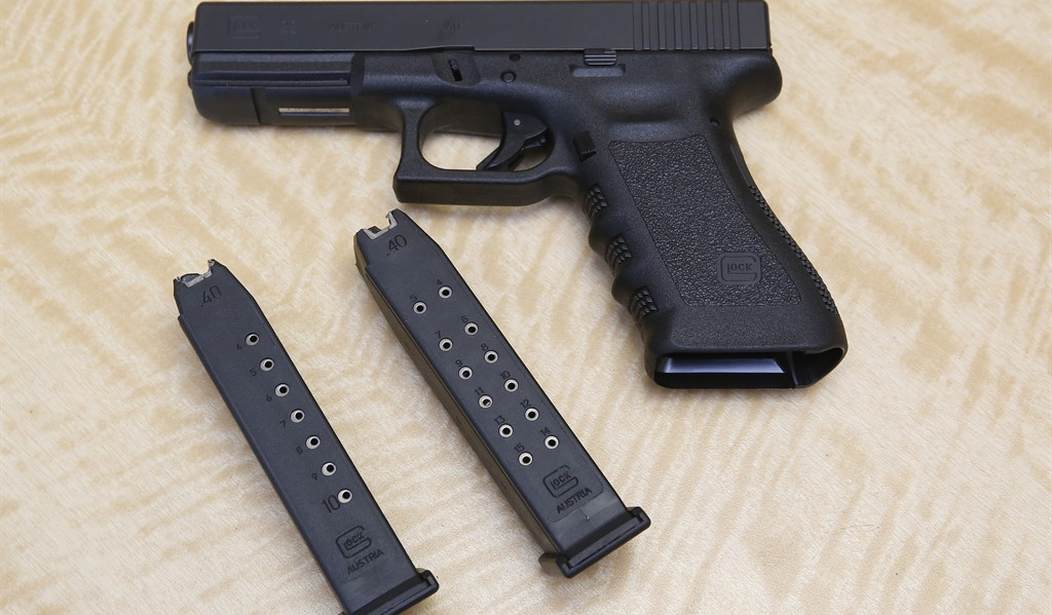The state Supreme Court in Washington is the latest judicial body to conclude that bans on "large capacity" magazines are perfectly compatible with the Second Amendment under the dubious theory that magazines aren't "arms" at all, merely accessories to firearms that can be regulated without issue.
In their decision, the justices made a couple of basic errors that, unfortunately, we've seen from other courts as well. The majority opinion asserts that SCOTUS has held that Second Amendment protects "the right to keep and bear arms as a means of self-defense". While that's true, the Court has also held that the Second Amendment isn't just about self-defense, but for "lawful purposes" including (but not limited to) self-defense.
As Second Amendment attorney Kostas Moros pointed out in his critique of the decision, "[w]hile magazines over ten rounds are commonly used for self-defense as millions of people carry such magazines daily, they are also used for target shooting, competitions, and in an extreme scenario, they would be used to resist foreign invaders or tyrant's armies."
But if magazines aren't "arms" then that doesn't really matter. And though magazines are an inherent part of any multi-shot firearm, the Washington Supreme Court bizarrely contends that they are historically analogous to cartridge boxes. Moros noted that "the analog to magazines today is....fixed magazines and cylinders in repeating rifles and revolvers."
"The fact that they are removable today does not make them not an 'arm,' nor does it make them just a mere cartridge box.They are arms because they are undoubtedly part of the 'weapon of offence' that a person “'takes into his hands, or useth in wrath to cast at or strike another.'", Moros aded, citing the Heller decision, which in turn cited founding-era dictionaries.
Under the logic used by the Washington Supreme Court, there's nothing stopping lawmakers in Olympia from banning magazines that can accept more than a single round if they decide to do so. Not every justice on the state Supreme Court bought into that absurd conclusion, but unfortunately common sense couldn't carry a majority of the court.
Two justices dissented from the majority: Sheryl Gordon McCloud and G. Helen Whitener. The former wrote that the law ESSB 5078 regulates how people use and possess arms, so therefore it is protected under the Second Amendment.
Gator’s Custom Guns, located at 109 Allen St. in Kelso, is at the center of the case. An employee told The Daily News that owner Wally Wentz declined to comment on Thursday and directed all inquiries to the Silent Majority Foundation, the nonprofit representing Gator’s in the case.
Pete Serrano, director and general counsel for the Silent Majority Foundation, told The Daily News he is disappointed with the Washington State Supreme Court’s decision. However, he noted that the dissent from the two justices and the majority opinion provide a clear roadmap on how to appeal to the United States Supreme Court.
He said they have 90 days to petition the highest court to take on the case.
The Supreme Court has already been holding on to a case dealing with Rhode Island's magazine ban since last December, and the Duncan case challenging California's ban on magazines that can hold more than ten rounds will also be appealed to SCOTUS within the next couple of weeks. There's no shortage of vehicles for SCOTUS to smack down this erroneous reading of the Second Amendment and ridiculous re-defining of what constitutes an "arm". The real question is whether there are enough justices in Washington, D.C. who are willing and ready to correct these errors, or if they'll just let these bad decisions remain in place.









Join the conversation as a VIP Member